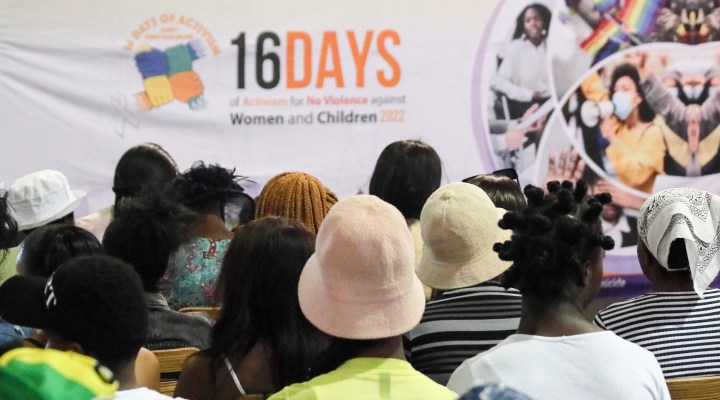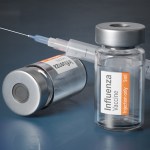CEASELESS DAYS OF ACTIVISM OP-ED
Gender-based violence and femicide is a 365-day-a-year issue

How do we implement gender-based violence and femicide prevention and response systems practically and develop an understanding of what the response system is at a local level?
On 25 November, the world marked the beginning of 16 days of Activism for No Violence Against Women and Children. In Cape Town, participants of the Strengthening Actors for Effective Preventative Response Project (Safe-PR) in Paarl and Philippi handed over Memorandums of Action to the local police and social development officials.
The Safe-PR project is a multi-stakeholder collaboration to end gender-based violence (GBV) coordinated by NGO Mosaic and currently piloted in Paarl, Philippi and Mitchell’s Plain. The Memorandum of Action highlights the systemic gaps in violence prevention and response at the local level, calling for collaboration with government stakeholders to close these gaps from the bottom up.
Two days before the 16 Days of Activism kicked off, police minister Bheki Cele released the quarterly crime statistics for July to September 2022. The stats revealed increases across all GBV crime categories, including 13,000 women who were victims of assault with intent to do grievous bodily harm and 10,590 rape cases opened with the police.
Of these rape cases, 62% of the rapes occurred at the victim or perpetrator’s home, and only 410 rapists had been traced and arrested during the same time period.
We know that SAPS statistics do not provide a complete picture of the prevalence of rape and other forms of GBV. Many cases go unreported, victims face barriers to accessing justice, and there are systemic issues in police data collation. Despite this, we cannot ignore the glaring gap between the number of cases reported and resulting arrests — this is a systemic issue requiring immediate attention.
The National Strategic Plan on Gender-Based Violence and Femicide (NSPGBVF) was launched two years ago with the aim of strengthening the accountability system toward women, children and gender non-conforming persons who experience GBV. However, the intended outcomes of the NSPGBVF are yet to be effected as there has not yet been complete localisation. Instead, the coordination and implementation of the strategy largely remain at a national level.
Many civil society organisations attending the second Presidential GBVF Summit voiced their discontent, not with the strategy’s contents, but that communities are not witnessing progress and change at a local level. As an organisation that responds to GBV at a community level, Mosaic realises that the localisation of GBVF strategies to enhance prevention and response services is vital.
Critical to a localised response is the coordination and collaboration of local actors responsible for day-to-day first-response services for GBV survivors. In addition, there is an ongoing need to build responder capacities to ensure they have a practical understanding of the laws and policies.
Visit Daily Maverick’s home page for more news, analysis and investigations
Localisation of services and interventions is based on the fundamental understanding that solutions to violence must be immediate and context connected. There is also an understanding that people implement such solutions. If the people mandated within various government departments to administer care, support and justice lack an understanding of laws, policies and instructions, we encounter a weakness in the system.
In response to this need, Mosaic launched the Safe-PR Project in 2020. Integral to the strategy is the recognition that no single entity can solve the complex problem of GBV alone.
As a collective of government and civil society GBV first responders, the Safe-PR platforms seek to collaborate, coordinate and connect all services responding to the needs of GBVF. The platforms offer a space for collective accountability, established referral pathways, knowledge sharing, and joint monitoring and evaluation to strengthen GBV prevention and response at a local level.
We recognise that the End-GBV Collective has sought to create collaboration platforms to ensure that government and civil society are coordinating, but how do we implement GBVF prevention and response systems practically and develop an understanding of what the response system is at a local level?
The Safe-PR project platforms have been meeting collectively for a year and a half. Through these meetings, we have developed a Memorandum of Action, providing a 365-day view of the gaps in prevention and response and how the system behaves and reacts toward victims of violence when they engage with it.
The Memorandum of Action calls for action and accountability against GBV 365 days of the year.
Specific barriers to care for survivors across the two Memorandums for Action for the Paarl and Philippi Safe-PR platforms include:
- Local Department of Social Development (DSD) offices are not responsive and there is a lack of clarity on the service flow for victims of GBV to access services of DSD;
- Despite SAPS members being trained on the GBV Acts and the National Instructions, there is a lack of practical implementation of guidelines in practice. The Mosaic Protection Order Baseline Study found a lack of practical training and a gap in knowledge that leads to police inefficiencies and non-compliance with the Domestic Violence Act; and
- Magistrates’ courts are insensitive to victims of domestic violence and the dynamics of danger that ensue once a victim has sought to apply for a protection order. There are numerous reports of security guards screening victims before they have a chance to access a court support worker and/or clerk of court.
Copies of the Memorandum of Action have been delivered to local government stakeholders in the Philippi and Paarl areas and will be followed by stakeholder dialogues in Philippi on 7 December and in Paarl on 9 December to find practical, local solutions to improve service delivery to victims of violence.
Through Mosaic’s coordination, the SAFE-PR provides a model that every community in the country can adapt to ensure local challenges are addressed to prevent and respond to GBV over a year. DM
Advocate Tarisai Mchuchu-MacMillan is Executive Director at Mosaic Women’s Training Service and Healing Centre in Cape Town.

















Comments - Please login in order to comment.